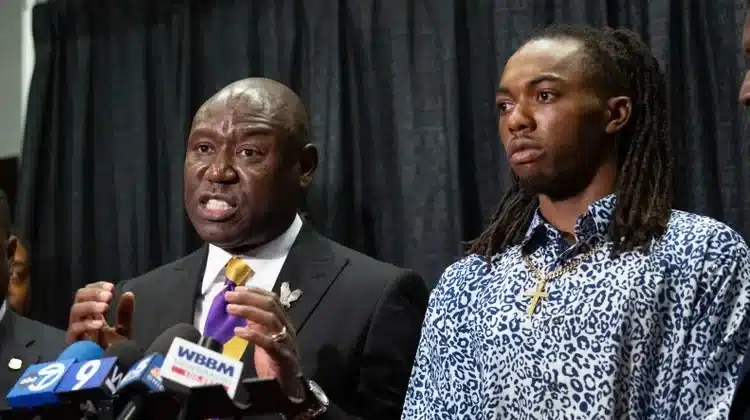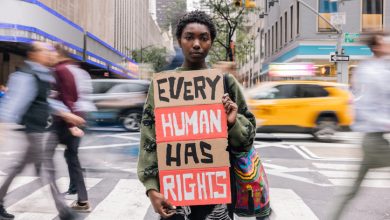Black Student Files Federal Lawsuit Over Police Beating During Florida Traffic Stop

A 22-year-old Black college student has filed a federal civil rights lawsuit against Jacksonville law enforcement officials after viral video showed officers dragging him from his car and beating him during a February traffic stop that sparked nationwide outrage.
The Incident and Viral Video
William McNeil Jr. was stopped by Jacksonville Sheriff’s Office Officer D. Bowers in February for allegedly failing to turn on his headlights and buckle his seatbelt. According to prosecutors’ reports, Bowers had been surveilling a house for “drug activity” when he observed McNeil’s SUV parked outside.
Cellphone video of the encounter, which went viral this summer, shows officers breaking McNeil’s car window and dragging him from the vehicle while striking him. The footage prompted widespread condemnation and calls for accountability from civil rights advocates.
Legal Action and Allegations
The federal lawsuit, filed Wednesday in Jacksonville, names Officer Bowers, another officer identified as D. Miller, Sheriff T.K. Waters, and both the City of Jacksonville and Duval County government as defendants.
McNeil’s legal team, led by prominent civil rights attorney Ben Crump and co-counsel Harry Daniels, alleges that Jacksonville Sheriff’s Office policies enable racial profiling and excessive force without consequences for officers.
“It’s an unjustifiable, unnecessary and most importantly unconstitutional use of force,” Crump stated during a press conference. The attorneys emphasized their goal extends beyond McNeil’s case to changing the broader culture of policing in the area.
Conflicting Accounts of Events
The incident has produced sharply different narratives from law enforcement and McNeil’s representatives. According to Bowers’ arrest report, he gave McNeil a dozen “lawful commands” to exit the vehicle, which McNeil allegedly disobeyed.
“The suspect continued to refuse to comply, at which time I broke the driver’s window and opened the driver’s door. I along with other officers on scene removed the suspect from the vehicle,” Bowers wrote. He claimed McNeil was “reaching for the floor board of the vehicle where a large knife was sitting.”
Sheriff Waters, who is Black, defended his officers’ actions, stating there was “more to the story than the viral cellphone video” and that McNeil was repeatedly asked to exit his vehicle. Waters noted that footage from inside the car “does not comprehensively capture the circumstances surrounding the incident.”
Prosecutorial Decision and Injuries
In August, prosecutors announced they would not file criminal charges against the officers involved. The State Attorney’s Office for the Fourth Judicial Circuit determined that Officer Bowers’ conduct did not constitute a crime based on their review of body camera footage, officer interviews, and McNeil’s statements.
Despite the lack of criminal charges, McNeil sustained significant injuries during the encounter. According to his attorneys, he suffered lacerations to his chin and lip, a fractured tooth, and has been diagnosed with an ongoing traumatic brain injury. McNeil also experiences symptoms consistent with post-traumatic stress disorder, including nightmares and flashbacks.
Personal Impact and Testimony
Speaking at the National Bar Association’s annual convention in Chicago in July, McNeil described the lasting psychological effects of the incident: “I’m still afraid of police. I’m still frightened at night. I don’t sleep still as much as I used to.”
The encounter occurred when McNeil questioned the justification for the traffic stop and requested that a supervisor respond to the scene—actions his attorneys characterize as exercising his constitutional rights.
Civil Rights Context and Response
Crump has positioned the case within the broader context of police accountability and civil rights, drawing parallels to historical patterns of violence against Black Americans asserting their rights. He criticized the prosecutors’ decision not to file charges, arguing that McNeil remained calm while trained officers escalated the situation rather than de-escalating tensions.
The lawsuit represents the latest high-profile case for Crump, who has gained national prominence representing victims of police brutality and vigilante violence. His involvement signals the case’s potential significance in ongoing debates about police reform and accountability.
Federal Investigation Requested
Beyond the civil lawsuit, McNeil’s attorneys have formally requested that the Department of Justice conduct its own investigation into what they describe as “excessive force” and “systemic failures” by Jacksonville officials.
This federal review request reflects the attorneys’ broader argument that the incident represents not just individual officer misconduct but institutional problems within the Jacksonville Sheriff’s Office that require federal oversight and intervention.
Law Enforcement Response
The Jacksonville Sheriff’s Office declined to comment on the lawsuit, citing the pending litigation. This response follows the office’s earlier defense of the officers’ actions and their contention that the viral video did not show the complete context of the encounter.
The case now enters the federal court system, where it will test competing narratives about police conduct, use of force standards, and the rights of citizens during traffic stops. The outcome could have implications for law enforcement practices not only in Jacksonville but potentially for similar cases nationwide involving allegations of excessive force during routine police encounters.




